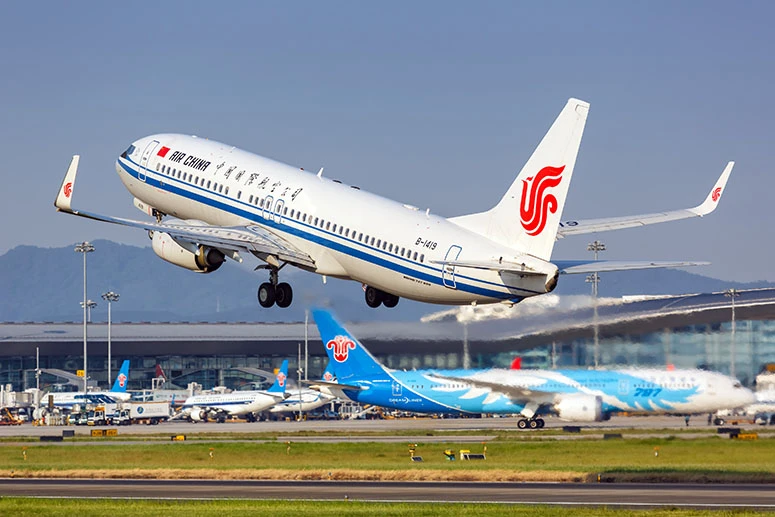European airlines are suspending flights to China following the closure of Russian airspace, Euronews reports.
Virgin Atlantic and SAS Scandinavian Airlines have completely stopped flying to the country this year. While a number of other companies - Finnair, British Airways, Lufthansa and LOT Polish Airlines - are "quietly withdrawing" from Chinese destinations, aviation news website Skift reports. Following Russia's full-scale invasion of Ukraine in February 2022 The EU and the UK quickly banned Russian aircraft from flying in their countries entirely. Russia responded by closing its airspace, forcing European carriers to take longer routes to Asia. With fuel accounting for about 25 percent of airlines' operating costs, flights to China have become significantly more expensive as a result, forcing European carriers to rethink their plans. Longer flights also require more crew, which also increases costs. Unlike the big announcements that accompany the opening of each new route, flight reductions are usually quiet, Skift notes.
Cirium Diio data analysis shows that Finnair has reduced the number of non-stop flights from Helsinki to China from 42 weekly in August 2019 to just three by August 2024, while maintaining daily service to Hong Kong. the increase is from 8 hours 30 minutes in pre-war times to 11 hours 24 minutes.
"Due to the closure of Russian airspace, flight times to our Asian destinations have increased by 10 to 40 percent, depending on the destination," Finnair's Chief Revenue Officer Kristin Roveli told Skift. "We have successfully adapted to this situation and refocused our network." with an increased focus on westbound flights while maintaining a strong presence in our core Asian markets," he added. For Finland, due to its proximity to Russia, this problem has been particularly acute, but it has also affected other European carriers.
Thus, in August, British Airways announced the suspension of flights from London Heathrow to Beijing, which have been running regular flights since 1980. Shanghai and Hong Kong remain on the schedule, but flights to the latter will be reduced from twice a day to once a day from the end of October.
And flights to Hong Kong will be operated by a 216-seat Boeing 787-9, which is significantly smaller than the 469-seat Airbus A380 superjumbo used previously. German flag carrier Lufthansa also said it is "considering the possibility of continuing daily flights from Frankfurt to Beijing. ". Polish airline LOT earlier this month announced cutbacks, including the cancellation of flights from Warsaw to Beijing this winter. On the other hand, Chinese airlines continue to fly over Russia unhindered, so they capture the transport market in this direction and are therefore not subject to the same costly solutions as their European partners: Chinese carriers will fly 82 percent of all flights between China and Europe this winter, John Grant, chief analyst at aviation analytics firm OAG, told CNBC. Before the epidemic, that figure was 56 percent.
About 18 new routes will open between China and Europe this season, Grant added, all of which will be operated by Chinese airlines. It's a reason European executives, including Air France-KLM's chief executive of Greater China Wouter Vermeulen, often lament. "for the lack of a level playing field".
However, it is not only about the issue of Russian airspace.
First, some European carriers are increasing capacity in other regions of Asia, where they also have to take more complex routes. For example, Finnair is increasing the number of flights to Thailand.
Skift also notes that Australia's national carrier Qantas has canceled its Sydney-Shanghai route over the summer despite not being affected by the Russian airspace ban. According to them, planes often fly half-empty.
This indicates that the market situation is more complicated. Strained economic relations between China and the West could affect the decisions of European airlines, one expert told the news site. Roughly speaking, according to Grant, the main issue is demand. China's slowing economy appears to be limiting outbound travel, while international interest in visiting the Asian superpower has also waned. Only 17.25 million foreigners visited China in July this year, according to official figures. That's a sharp drop from the 49.1 million visitors in pre-pandemic 2019. But most European airlines are reluctant to pull out of China entirely. they want to keep their "spot" on the route map in hopes of revival.


